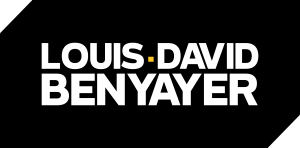The goal of all strategies is to build a distinctive and valuable positioning. How can data and analytics contribute to that goal? I use here Netflix as an example.
Being different is the only viable positioning
One main hypothesis of strategy is that sustainable competitive advantage can only be achieved through being different. The offer can be different (different products, different performance or quality levels), the clients segment can be different (offering a product to a segment that was not targeted before) or the operations can be performed differently (outsource or internalize an activity).
It’s even more true for new entrants: they need to use a different playbook to enter a market. If they play by the rules of the incumbents they have almost no chance to thrive. The reason is simple: some of the rules have been built exactly to prevent newcomers to enter the market.
One old but very good example of that is Dell in the 90’s. Some of you are old enough to have experienced it, right? For the younger ones reading, well, let me take you through the example quickly. Dell entered the market with hypotheses that were opposite to the mainstream hypotheses of their industry at that time:
- direct selling to customers (vs the industry was organised with manufacturers and distributors)
- customization of the product by the customer and on-demand manufacturing (vs the industry was organised with standard products that were pushed to the customers)
- location of the assembling in high labour cost countries, US and Europe (vs the manufacturing was outsourced to Asian subcontractors)
This very different approach proved to be very valuable in many aspects:
- better control of the user experience by integrating the distribution
- more attractive value proposition to clients through customization of products
- reduced costs (only the products paid by the clients were assembled)
- better cash flows (they cashed-in when the clients order, before assembling the product)
Using data and analytics to build a difference
So now the question is: how data and analytics can help to be different or doing things differently?
Netflix comes immediately to mind as an example. The company totally changed the way to experience and consume media. Let’s first review the differences Netflix built the model on and how data is used to value them:
- subscription-based revenue model (vs per film viewed revenue): users data are analysed very precisely to 1) implement recommendations that increase the satisfaction (watching movies the users like), which in turn increases the duration of their subscription and 2) customize the movie’s marketing according to users profiles (for example, changing the pictures used for showcasing the movies)
- leverage users individual interests (vs leveraging popularity of shows): the recommendation algorithm stresses the individual usage history and tastes to offer customized recommendations (according to Netflix, over 75% of viewer activity is based on personalised recommendations)
- produce original content and design content based on users tastes (vs buy content produced by someone else designed by creative writers and experienced executives): users data (what they watch, how long, what they type in the search bar, …) is analysed and used to fuel the teams of showrunners designing the screenplays
- create different content and leverage national shows (vs global blockbusters): La Casa de Papel is one example of a Spanish series turned into a global product. This helped in the geographic expansion strategy of the company (less than half of the subscribers are US citizens).
For an example of how this secret sauce explains the recent success of The Umbrella Academy, you can read this report on Forbes.
So, what’s the value of that difference for Netflix, you’ll see they do not differ that much from Dell:
- more steady revenues with the subscription-based revenue model
- higher differentiation through exclusive content production
- higher users loyalty through personalisation (93% transformation rate of free-trial periods)
- lower cost (less unprofitable movies produced, higher success rate of the movies produced)
Questions you should ask yourself
To be clear, being different is not an accident, it’s a deliberate choice, so the first question should be: how different you want to be? What are the differences you want to stress? What value do they bring?
The second question is about data and analytics: how information can be leveraged to improve decision making and maximise the number of transactions.

